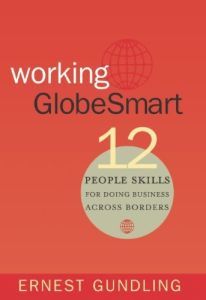Join getAbstract to access the summary!

Join getAbstract to access the summary!
Ernest Gundling
Working GlobeSmart
12 People Skills for Doing Business Across Borders
Davies-Black Publishing, 2003
What's inside?
When you embark on global business dealings, leave your assumptions at home. Adaptability is a cultural necessity.
Recommendation
This basic, solid book on global business takes nothing for granted. Author Ernest Gundling teaches by example and illustration, and has something approaching a horror of direct statement. At the end of each chapter, where a bolder writer might insert points to remember, he provides, instead, lists of questions to consider. This book will tell you the skills you need and will make you very aware of your deficits, but it will not tell you precisely how to develop those skills. Gundling does provide a wealth of little, fictitious anecdotes about people who have done the right or wrong thing in global business. In a refreshingly humble approach, he sometimes uses his own blunders as examples of what not to do. getAbstract.com recommends his book, which brings to mind that Socrates was judged the wisest of men because he knew he knew nothing. Readers will come a few steps closer to such Socratic enlightenment. What you may not know about conducting yourself in international business would fill a book - this one.
Summary
About the Author
Ernest Gundling, Ph.D., co-founder and managing director of Meridian Resources Associates, Inc., is the author of The 3M Way to Innovation. He lectures at the Haas School of Business at the University of California, Berkeley.



















Comment on this summary